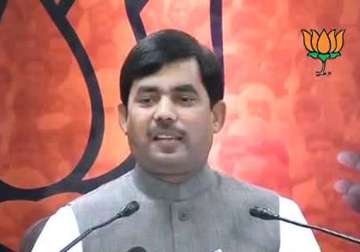Patna, May 18: BJP today asked the Centre to remove “inadequacies” in the ambitious Food bill by increasing its coverage area and fixing all foodgrains at a flat Rs 1 a kg and suggested that it should be modelled after Chhattisgarh food legislation.
“The UPA government should remove inadequacies in the Food Bill by extending the benefit to larger section of population,” BJP national spokesman Shahnawaz Hussain told reporters.
Hailing the success of food legislation in BJP-ruled Chhattisgarh which is covering 90 per cent of the population under food security legislation, he suggested that the Central Food bill be modelled after it.
The proposed Food Bill would provide subsidised foodgrains to 67 per cent of the population while the food legislation of Chhattisgarh covers 90 per cent of the citizens.
Citing the reference of the Chhattisgarh legislation, he said it includes all the citizens except the landlords who are tax payers.
Without removal of inadequacies, the Food Bill would also meet the fate of Congress earlier slogans like “garibi mitao” (remove poverty), the BJP leader said.
While the Chhattisgarh model provides foodgrains at a flat rate of Rs 1 a kg, the central legislation proposes to give rice at Rs 3 per kg, wheat at Rs 2 a kg, he said and demanded all the foodgrains be made available at Rs 1 a kg like Chhattisgarh.
Hussain, who is BJP Lok Sabha member from Bhagalpur in Bihar, shared Chief Minister Nitish Kumar view that under the Food Bill, the Centre should foot the additional cost of implementing the legislation instead of putting burden on the cash-strapped states.
